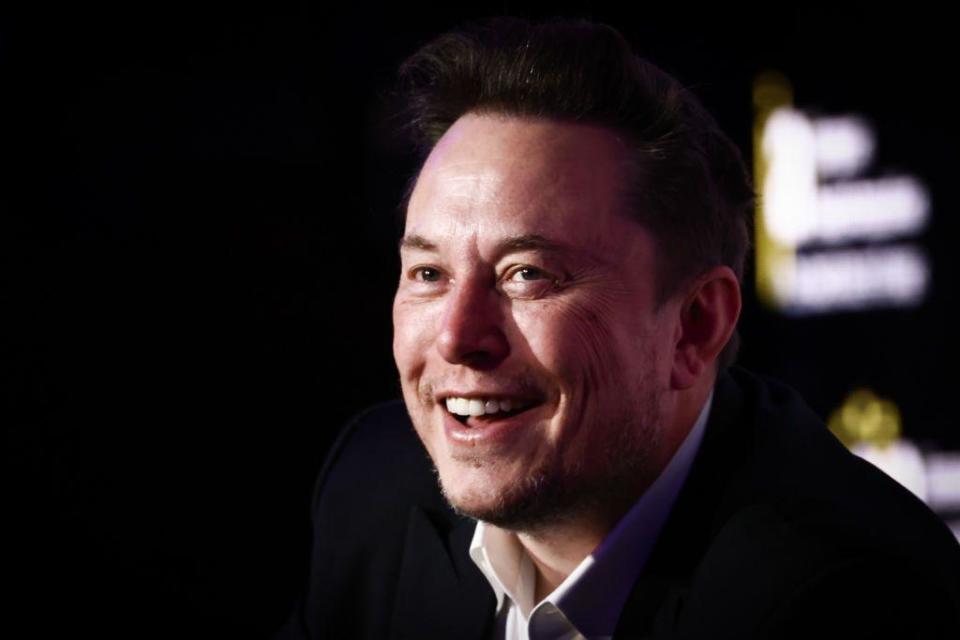Tesla shares jump after reports of China deal
Tesla’s shares have jumped after reports the firm has cleared an important regulatory hurdle in China by partnering with search giant Baidu.
The reports come after chief executive Elon Musk made a surprise visit to meet the country’s number two leader, Premier Li Qiang.
The deal with Baidu brings Mr Musk a step closer to rolling out Tesla's self-driving technology in China.
Wedbush analyst Daniel Ives said it was “a watershed moment”. Tesla has been contacted for comment. Baidu declined to comment.
Mr Ives said the company faces “massive domestic electric vehicle competition in China along with softer demand”, but that its “long-term valuation story” depends on it also getting approval for fully autonomous driving.
The agreement with Baidu that is being reported would allow Tesla to go ahead with some autonomous driving technology in China.
Baidu's mapping and navigation services would aid Tesla's self-driving technology, including assisted parking, but full autonomous technology would still require further approval.
Tesla is one of the world’s largest electric car manufacturers, and China is its second biggest market, but it has yet to launch autonomous driving there as it has in other countries, such as the US.
Mr Musk strongly believes that autonomous driving is the future.
"If somebody doesn't believe Tesla is going to solve autonomy, I think they should not be an investor," he has previously said.

However, even in the US, autonomous cars face challenges and further regulatory hurdles.
Tesla's autopilot allows drivers to hand control to the vehicle's AI, but it still needs constant human oversight.
Despite this precaution, misuse of the technology has been fatal.
Last Friday, the US auto regulator opened a probe into the "adequacy" of a software update Tesla made to try to fix problems with its autopilot feature.
The agency said "foreseeable driver misuse of the system played an apparent role" in at least 13 Tesla crashes, including at least one death, and many more involving serious injuries.
In December, a former Tesla employee told the BBC he did not believe the technology powering the firm's self-driving vehicles was safe enough to be used on public roads.
'Win-win results'
Tesla’s share price jumped almost 12% as markets opened in the US on Monday and means the stock has recovered some of the value it has lost since the start of the year, with the price down over a quarter since January.
The Chinese approval — which hasn't been officially confirmed by Tesla or Baidu but was reported by AP, Reuters, Bloomberg, the Financial Times, and others — comes after Mr Musk flew to China on the weekend to meet with senior officials.
State media quoted Mr Musk as saying Tesla wanted co-operation with the country to "achieve more win-win results".
Part of the reason analysts believe the firm needs approval in China is because its financial performance has weakened.
In its results last Tuesday, it recorded $21.3bn (£17bn) in sales for the first three months of this year.
This was a drop from the $23.3bn recorded in the first three months of 2023 and lower than analysts' predictions of just over $22bn.
It pinned its falling sales on "additional competitors" and "changes in government and economic incentives" for electric vehicles.
US revenue decreased from $11.2bn to $9.76bn, while Chinese sales fared better, falling from $4.89bn to $4.59bn.


